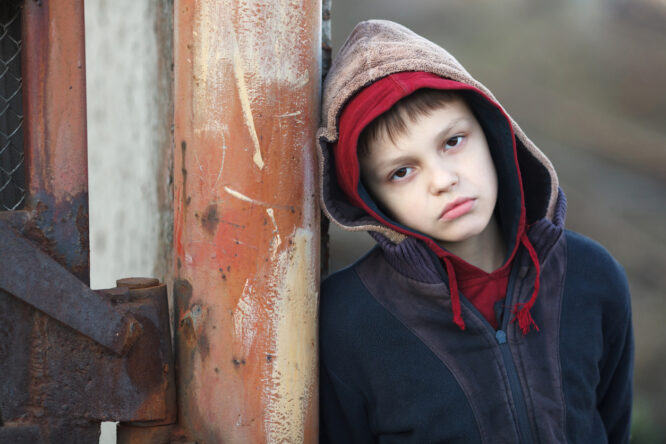Family estrangement can be slow and calm, or dramatic and final, but either way, it often leaves behind a mess of questions, guilt, relief, and unresolved grief.

Whether you’re the one who pulled away or the one who was left behind, it’s rarely about just one incident. Estrangement is usually the outcome of repeated breakdowns—patterns that were ignored, feelings that weren’t validated, or boundaries that were crossed too many times. These are some of the most common reasons families grow apart, and how to start making peace with each, whether or not reconnection is part of the plan.
1. Repeated boundary violations

When a family member consistently ignores your boundaries—whether emotional, physical, or lifestyle-related—it creates a slow destruction of trust. As time goes on, it sends the message that your comfort or autonomy doesn’t matter to them.
Dealing with this starts with reinforcing your limits clearly and calmly, often more than once. However, if they continue to push, distance can become a form of self-protection, not punishment. Healing may mean honouring the boundary, even if other people don’t.
2. Persistent criticism and judgement

Families can sometimes hide cruelty under the guise of “just being honest” or “trying to help.” However, if every conversation you have or time you spend with them leaves you feeling smaller, judged, or never quite good enough, that dynamic takes a toll. Protecting yourself might look like limiting contact or changing the terms of the relationship. You don’t owe anyone endless access to your life, especially when their words keep cutting deeper than they realise, or care to acknowledge.
3. Unacknowledged trauma or abuse

When a family member has been abusive—physically, emotionally, or otherwise—and the rest of the family pretends it never happened or expects you to “just move on,” it can feel like your reality is being erased. Estrangement in this case is often necessary for healing. If reconciliation ever becomes possible, it should be on your terms, with acknowledgment and accountability, not guilt-driven silence.
4. Favouritism and unequal treatment

Whether it’s one sibling always being praised, or one child always expected to give more, consistent unequal treatment can fracture family dynamics. As time goes on, resentment builds, even if no one says it out loud. Dealing with this means acknowledging the imbalance without waiting for anyone else to validate it. Sometimes the healthiest move is stepping away from a role you never consented to play in the first place.
5. Clashing values and beliefs

When political, religious, or lifestyle differences turn into insults, judgement, or full-on rejection, it can break down even the closest families. Disagreeing is one thing. Being made to feel “wrong” for who you are is another. You can hold space for different beliefs, of course, but not at the expense of your dignity. In some cases, distance becomes the only way to preserve peace without self-abandonment.
6. Being treated like the scapegoat

Some family systems have an unspoken scapegoat—someone blamed for everything, labelled as difficult, or seen as the source of tension. It’s usually the person who dares to speak up or act differently from the rest. If this is you, the most powerful step is naming it internally. You’re not the problem. You’re reacting to a dynamic that was unhealthy long before you pointed it out. Healing might start with walking away from roles you never chose.
7. Inherited silence and emotional avoidance

In some families, no one talks about anything real. There’s a culture of avoidance, where emotions are repressed and conflicts are swept under the rug. Eventually, that lack of connection becomes too much to ignore. If emotional safety never existed, stepping back can be a way of creating the emotional honesty you never had. Estrangement might not be out of anger; it may just be a refusal to keep pretending everything’s fine when it never was.
8. Control disguised as concern

Sometimes family involvement comes with strings—expectations about who you should be, how you should live, or who you should love. It’s often framed as love, but it doesn’t feel like freedom. Dealing with this means separating love from control. You can still care for people and not let them steer your life. Sometimes distance is the only way to stop performing and start living as your actual self.
9. One-sided emotional labour

If you’re always the one reaching out, checking in, or repairing rifts, it creates an emotional imbalance. Eventually, the weight of keeping the connection alive starts to feel more like a burden than a bond. Letting go of that role can feel lonely at first, but also freeing. It allows space to see who shows up when you’re no longer carrying the entire emotional workload on your own.
10. Betrayal of trust

Whether it’s gossip, lies, or major breaches of confidence, betrayal cuts deeply, especially when it comes from family. It’s not just about what happened, but what it revealed: that your trust wasn’t valued. Rebuilding trust takes time, transparency, and mutual effort. However, if the betrayal is denied or minimised, distance may be the only path that feels emotionally safe and self-honouring.
11. Neglect or indifference over the years

Not all estrangement comes from conflict. Sometimes it comes from quiet neglect. A lack of emotional effort. Phone calls that never come. Milestones ignored. Love that feels one-sided or performative. People don’t always realise that drifting apart can be just as painful as falling out. Healing might not mean reuniting. It may mean grieving what never really was and choosing to invest in more reciprocal relationships elsewhere.
12. Financial arguments

Money often brings up old tensions—inheritance, support, loans, or family business dynamics. When fairness is questioned or greed surfaces, relationships can quickly unravel. It’s important to protect your own financial boundaries and document agreements when needed. However, emotional repair only happens when the relationship is prioritised over the transaction. Without that, estrangement is often the fallout.
13. Differing expectations of loyalty

Some families expect blind loyalty—defend the family at all costs, never question tradition, always put “us” first. Of course, when that loyalty requires self-silencing or ignoring harm, it stops feeling like love. Deciding to live by your own compass, rather than inherited obligation, can cause friction. That being said, it’s often the first step toward building a life that feels honest, even if it costs the illusion of family unity.
14. Parental alienation or sibling division

Sometimes estrangement isn’t chosen, it’s created. Divorced parents turning children against one another. Siblings competing for approval. Family members triangulating to keep other people at odds. If you’ve been caught in the middle of this kind of dynamic, healing starts with stepping out of the power plays. You don’t have to fix it. You just have to stop participating in something that was never fair to begin with.
15. A major life change that revealed emotional distance

Coming out. Moving away. Starting therapy. Getting married. Sometimes a major turning point in your life reveals that your family doesn’t truly see or accept the real you, and it stings more than you expected. When your growth creates more distance than connection, it’s not your job to shrink back. You can still honour your evolution and grieve the connection that couldn’t grow with you.
16. You finally stopped pretending

Sometimes, estrangement isn’t about a final blowout—it’s about reaching a calm, steady truth. You realise you’ve been performing just to keep the peace, biting your tongue, playing small to avoid conflict. Then, one day, you stop. You stop explaining. Stop chasing. Stop pretending. The relationship fades, not because you stopped caring, but because you started choosing peace over performance. That clarity, though painful, is often what healing really looks like.




